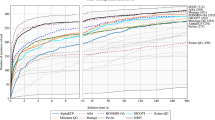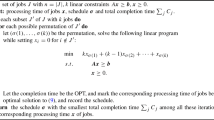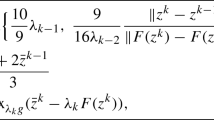Abstract.
Several sequential approximation algorithms for combinatorial optimization problems are based on the following paradigm: solve a linear or semidefinite programming relaxation, then use randomized rounding to convert fractional solutions of the relaxation into integer solutions for the original combinatorial problem. We demonstrate that such a paradigm can also yield parallel approximation algorithms by showing how to convert certain linear programming relaxations into essentially equivalent positive linear programming [LN] relaxations that can be near-optimally solved in NC. Building on this technique, and finding some new linear programming relaxations, we develop improved parallel approximation algorithms for Max Sat, Max Directed Cut, and Max k CSP. The Max Sat algorithm essentially matches the best approximation obtainable with sequential algorithms and has a fast sequential version. The Max k CSP algorithm improves even over previous sequential algorithms. We also show a connection between probabilistic proof checking and a restricted version of Max k CSP. This implies that our approximation algorithm for Max k CSP can be used to prove inclusion in P for certain PCP classes.
Similar content being viewed by others
Author information
Authors and Affiliations
Additional information
Received November 1996; revised March 1997.
Rights and permissions
About this article
Cite this article
Trevisan, L. Parallel Approximation Algorithms by Positive Linear Programming . Algorithmica 21, 72–88 (1998). https://doi.org/10.1007/PL00009209
Issue Date:
DOI: https://doi.org/10.1007/PL00009209




